Profile
Kuukua Eshun: Telling impactful stories through art, creativity

After discovering her poetic and writing potentials at an early age, she was perhaps not certain where the road may lead her.
However, with consistency and dedication over the years, she is currently making a mark in the creative space and looks forward to achieving more on both local and international fronts.
The spotlight, in this edition, is on fast-rising Ms Kuukua Eshun Ghanaian-American filmmaker and storyteller whose productions have been screened at film festivals across the world.
Her film, “Artist, Act of Love”, released in 2019, recently won an award at the Worldwide Women’s Film Festival for ‘Best Visual Effect’ and was selected by the European Union for the 2020 European Film Festival.

Background
Kuukua was born in Accra but lived the greater part of her life in the United States of America, where she studied Arts and Science at Columbus State University.
She returned to Ghana recently and is working on other promising projects that would augment the works of the relatively few women filmmakers in the local creative industry.
In an interview with The Spectator, the 27-year-oldexplained that storytelling had been one of her preoccupations ever since she was in high school but decided to pursue it professionally about three years ago.
“Ever since I was young, I have always known how to express how I feel through words. Before I started film, I was doing a lot of writing.Whenever I was upset, sad or happy, I would always write it in my diary.
“It got to a point where I thought I could turn my words into film.”Film making gives me the ability to see my strength and it gives me a lot of freedom,” she noted.
Filmmaking
Taking inspiration from “emotions and femininity,” she is focused on raising awareness about social issues through her writings and film.
To this end, she said, a documentary on sexual violence would be screened in Ghana and Europe in December this year and was expected to empower women who had survived sexual assault and encourage others to overcome their “worst experiences.”
The director cum producer described filmmaking as a “calling” and considers it a way of expressing herself and sharing her story with the world.
Projects
Prior to releasing her award-winning ‘Artist, Acts of Love” film, she had already released a short poetry film titled:“Stranger to Your Seed,” which attracted positive reviews on her YouTube channel about two years ago.
Another “Experimental Short Film” labelled: “Wake,” was also released about two weeks ago and was gaining some traction on the same channel.
“Artist, Acts of Love” which talks about “feeling and knowing love” is described as “a romantic escapism for people who love deeply.”
Currently working with popular actress and producer Ama .K. Abebrese, Kuukua considers herself “a powerhouse who would continue to tell stories that matter through her art and work.”
The creative filmmaker had, in recent years, worked with top brands such as Roc-nation, Vic Mensa, Wizkid, Huawei, Facebook, Variety Magazine, Michaela Coel, Lifetime TV, The Economist,among others.
Advocacy
As an advocate, she has spoken on university platforms in the United States, Ghana International School, and many other conferences, but has recently collaborated with United Nations Population Fund (UNFPA) Ghana, to hold a healing session for young women who are survivors of sexual assault.
Her articles have been published in some international magazines and website as well as published in the ECA Literary Magazine, Apple News, Ghana web and many more.
Kuukua is the co-founder of Boxed kids, an organisation which provides education to deprived children at James. She said the organisation, in spite of challenges, continued to impact the lives of about 50 children in the community and continues to attract the attention of other well-meaning organisations and individuals.
Her vision to create“a safe space for women in sports” againled her to join other partners to establish an all-female skate crew in Accra known as the “Skate Gal Club.”
Skate Gal Club, among other things, seeks to build the confidence of women, educate women about sport and change the perception about women in sports.It organises community events and has so far taught about 200 girls the basics of skateboarding.
The club, according to the team, is currently crowdfunding the creation of Accra’s first dedicated skate park to “avoid frequent clashes with the police and some members of the public who see skating a nuisance.”
By Ernest Nutsugah
Profile
Edwina Anokye-Bempah Redefining Trust in Ghana’s Real Estate Landscape
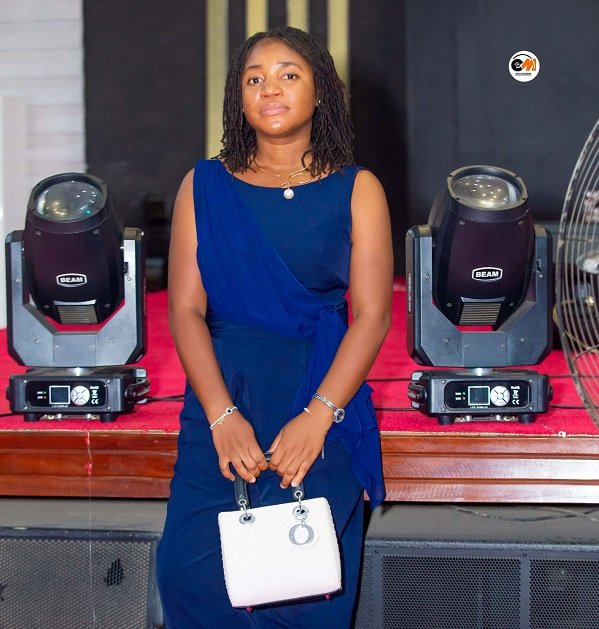
Every morning begins the same way for Edwina Anokye-Bempah, with quiet devotion. It is her grounding ritual, a moment of reflection and gratitude before she steps into the dynamic, often unpredictable world of real estate brokerage.
By the time she arrives at the office, she has already set the tone for her day. She reviews the previous day’s tasks, checks what was accomplished and what still needs attention, and then drafts a new to-do list. For her, success is rooted in deliberate planning, discipline, and the commitment to follow through.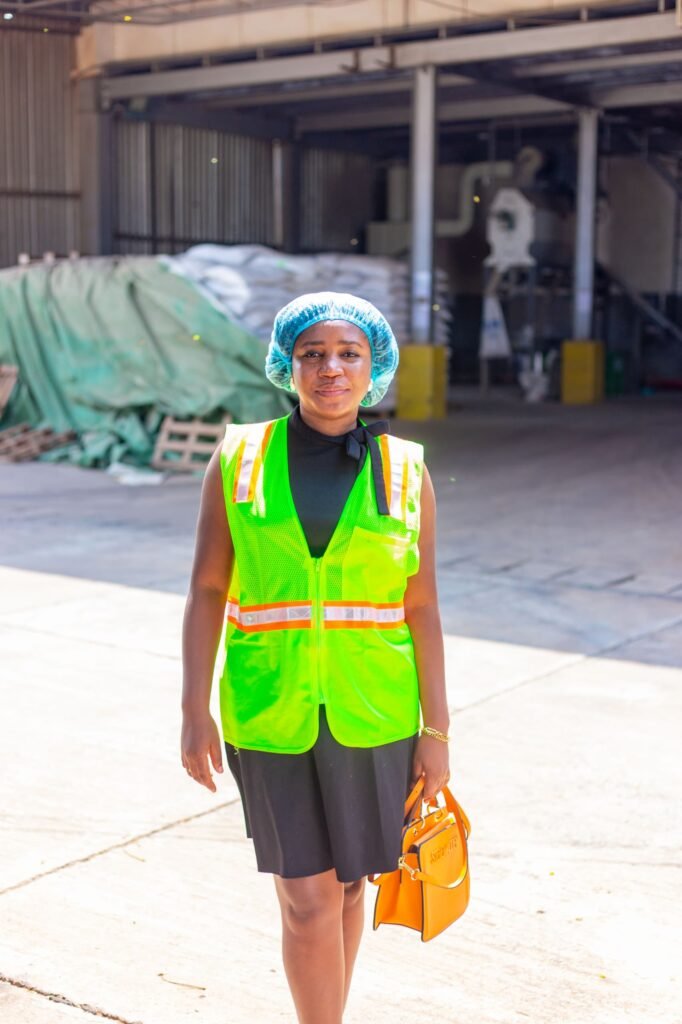
Today, Edwina stands out as one of Ghana’s promising real estate brokers, but she is also clear about the distinctions within her field. While many people casually use the term ‘realtor,’ she is quick to explain that only professionals registered with the National Association of Realtors can claim that title.
“Since I am not registered with the association, I am a real estate broker,” she says. It is a role she embraces wholeheartedly, facilitating transactions, connecting buyers and sellers, and ensuring clarity and integrity at every step.
Her journey into the industry took shape at MeQasa, an online platform dedicated solely to real estate. The platform exposed her to developers, agents, and the complexities of property transactions. She worked closely with developers and observed one recurring problem: clients often complained about agents who failed to respond, follow up, or provide accurate information.
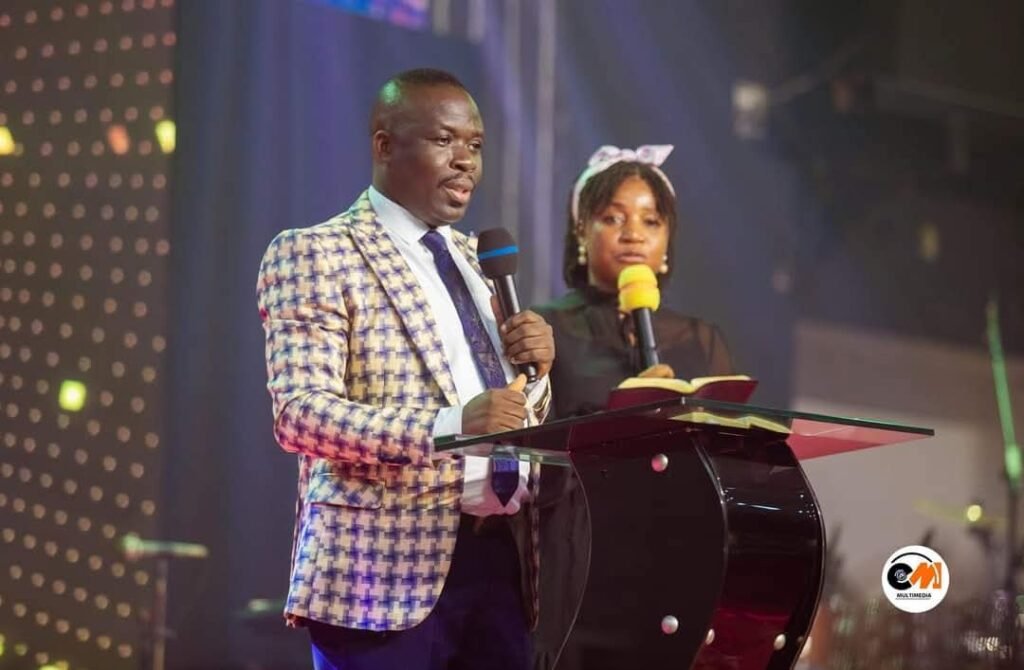
With her background in sales and marketing, Edwina felt naturally drawn to the field. It was an industry where she believed she could make a meaningful, positive impact. Real estate, she came to learn, is far more than brick and mortar. It is about helping people secure one of the most important investments of their lives. This understanding shapes every decision she makes.
One of the most challenging tasks in her work is qualifying clients.
“A serious buyer must be willing, ready and able,” she explains. When one of these three qualities is missing, the transaction is likely to stall or collapse entirely.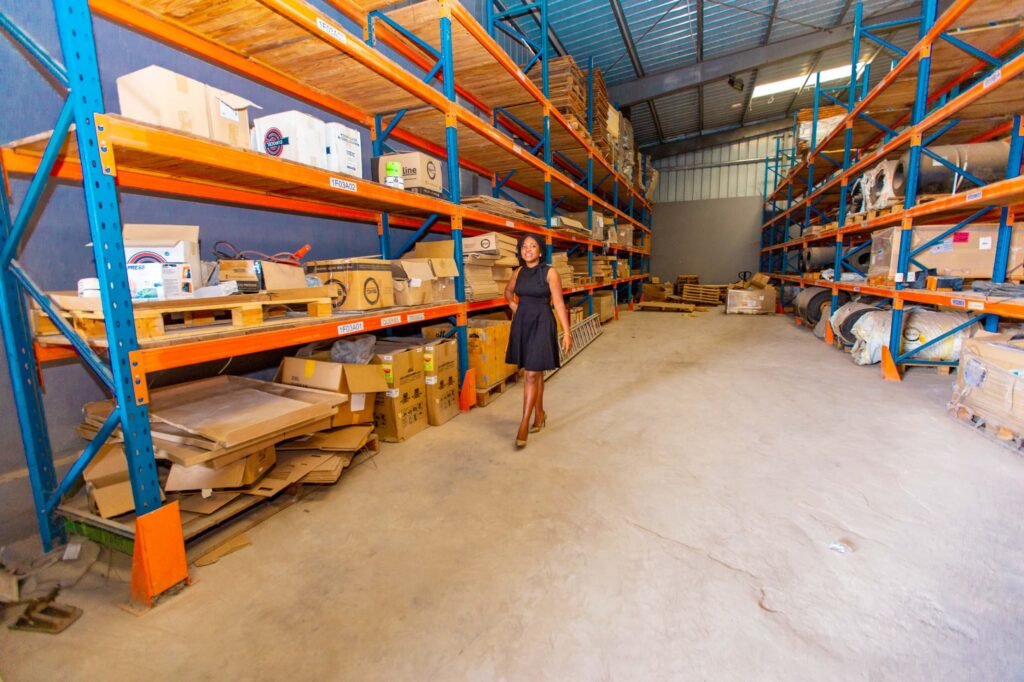
On the seller’s side, due diligence is equally critical. Ownership disputes, land fraud, and unclear documentation remain some of the biggest risks in Ghana’s real estate sector.
Edwina understands the weight of the responsibility she carries. “The money involved is huge. These are people’s lifetime savings. Most people buy one home or maybe two in their entire lives. You cannot afford to make a mistake.”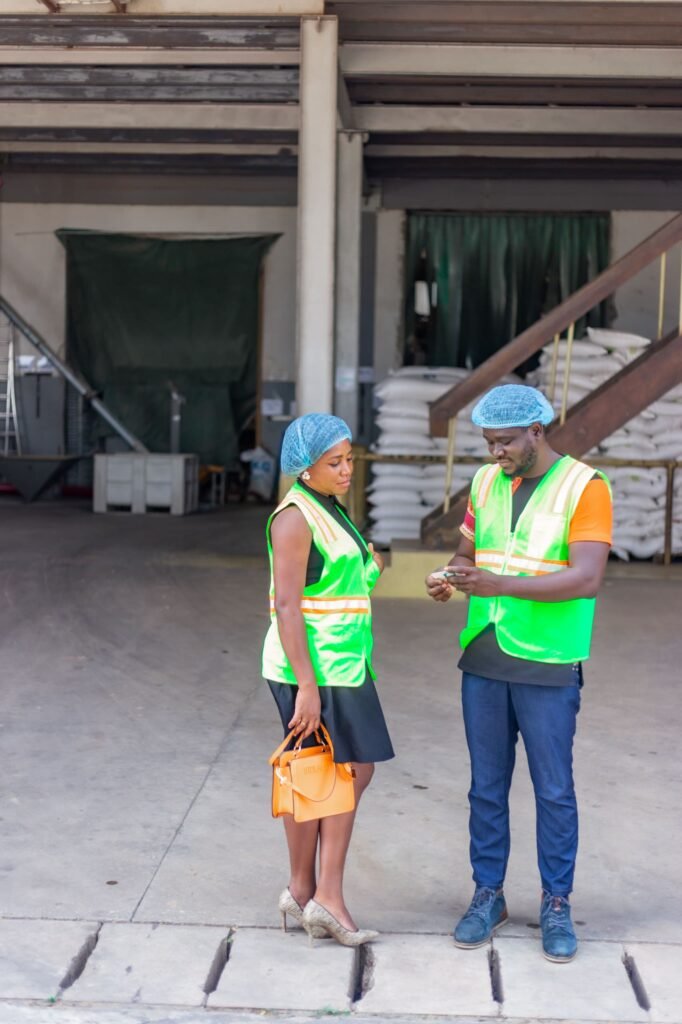
Working in what many describe as a male-dominated field has never intimidated her. With an MBA in Marketing and extensive experience in sales roles including a stint as an Account Manager in an advertising agency, she has grown comfortable handling clients, negotiating deals, and presenting herself with confidence.
“My gender has never discouraged me,” she says. “What matters is hard work and ensuring that the client’s needs were met.”
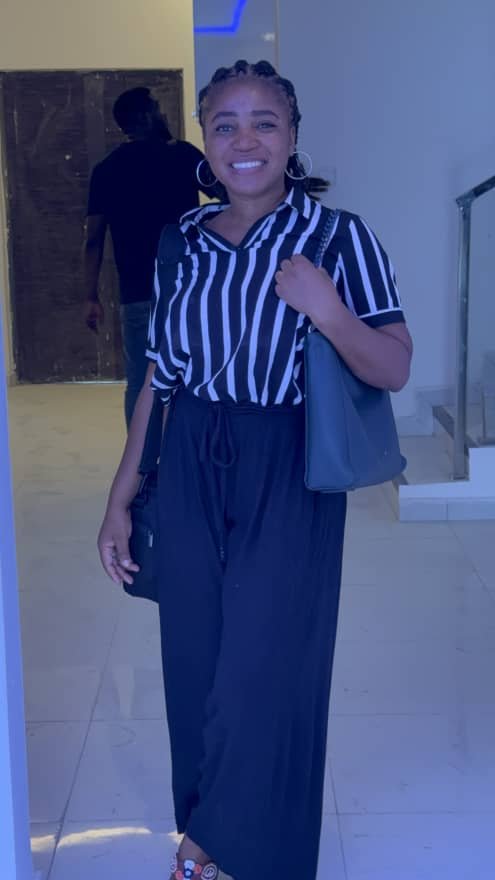
The only occasional challenge, she admits, was maintaining professional boundaries when some men attempt to be overly familiar. Her solution is simple: stay professional and do not over-familiarise yourself with clients.
Her educational journey started in Kumasi, followed by Yaa Asantewaa Girls’ Senior High School, where she studied Agricultural Science. She continued the same at the University of Ghana before pursuing her master’s degree. After university, she worked on her uncle’s poultry farm before moving into advertising. Later, her role at MeQasa finally opened the door to the career she had long been unknowingly preparing for.
Over the years, Edwina has built a reputation not only for competence but also for care. She recalls one client in particular, an older man relocating to Ghana with no family in the country. After helping him secure two homes, she became the closest person he could rely on. One evening at around 8 p.m., he called to say he felt unwell. Without hesitation, she drove to his home and rushed him to the hospital. Doctors later told her that any delay could have been fatal.
For Edwina, that moment affirmed that the job goes far beyond selling property. “It doesn’t end with the sale,” she says. “You have to look out for people.”
Her influence also extends to younger people observing her journey. She is known for her tenacity, her refusal to give up on clients or tasks, and her resilience in the face of challenges. Those who work around her learn to push forward regardless of setbacks.
“If a deal doesn’t go as expected, you don’t look back. You find a way.”
Beyond real estate, Edwina serves as an interpreter in her church, a role that dramatically boosted her confidence. What began with trembling legs has evolved into a boldness that reflects in her public speaking and client interactions. She credits her growth to God, her senior pastor, her mother, siblings, friends, and her dedicated team — “an amazing circle,” she calls them.
Today, she is also a partner in a showroom business dealing in vanity units, sanitary wares, and tiles, an extension of her real estate insight and experience.
For young people aspiring to join the industry, her advice is clear: “Learn the industry beyond selling. Understand transactions, build strong relationships, and always do your due diligence.”
For Edwina Anokye-Bempah, real estate is more than business; it is trust, service, and impact, one client at a time.
By Esinam Jemima Kuatsinu
Join our WhatsApp Channel now!
https://whatsapp.com/channel/0029VbBElzjInlqHhl1aTU27
Profile
How a Collapsed Dream Birthed Another: Daniel Debrah’s Music Journey

From the age of five, Daniel Nana Kwesi Kakra Debrah has lived a life surrounded by rhythm, harmony, and the quiet pulse of music. Growing up in a home where instruments filled corners and rehearsals were as normal as conversation, Daniel’s first teachers were not in formal classrooms—they were the sounds, movements, and discipline he absorbed from his father, a committed church musician.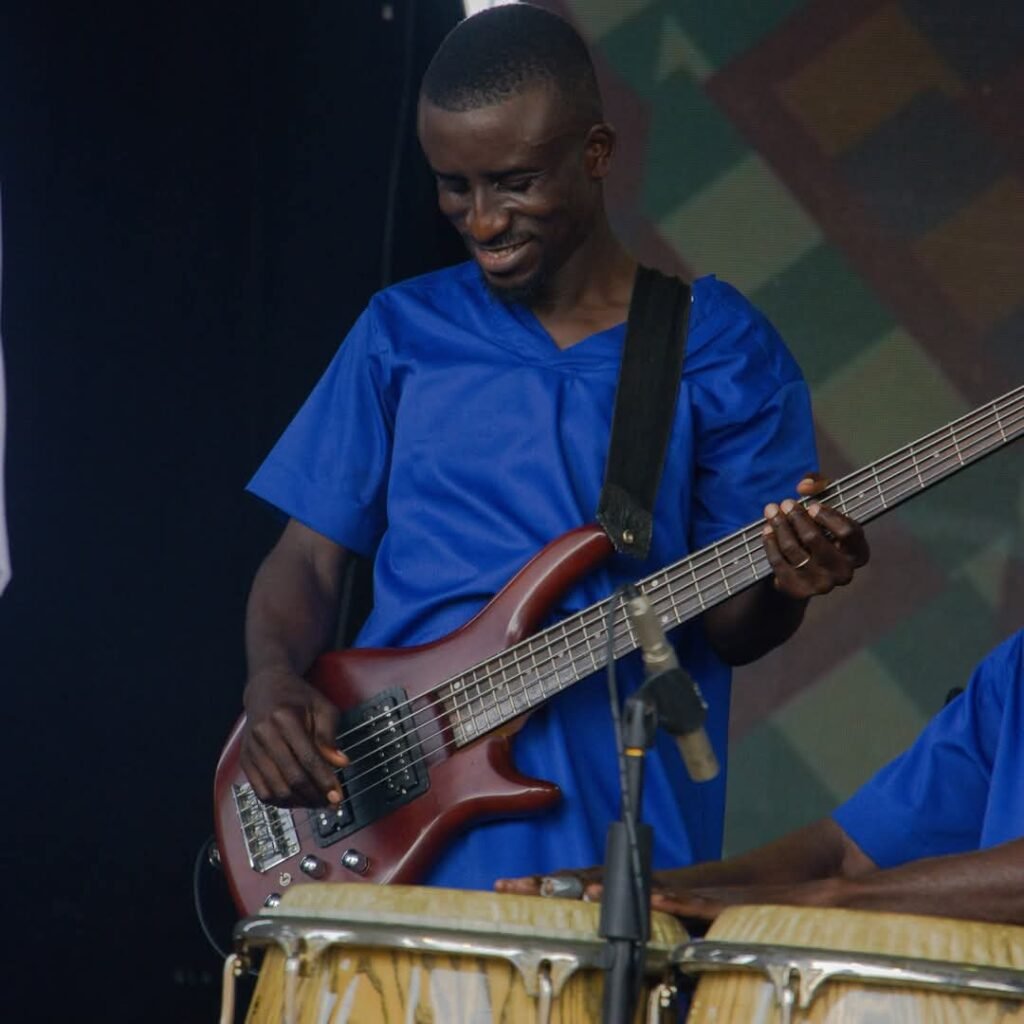
Ironically, music was not Daniel’s first dream. Like many young boys, he once hoped to become a professional footballer. But an injury from a school match left him unable to walk for three months, forcing him to retire that ambition. What seemed like a tragedy at the time became the turning point that aligned him with the path he was always meant to follow.
Daniel’s earliest musical expression began in church. As a boy in Sunday School, he eagerly ‘pounded’ the drums, quickly becoming known as the child who never missed an opportunity to play. Even in Senior High School (SHS), although many of his classmates were unaware of his talent, he continued practising quietly until completing school in 2005.
After SHS, Daniel joined a church music class with the intention of growing as a drummer, but one moment changed everything. Watching a bass guitarist perform stirred something in him. Drawn to the deep, steady tones of the bass, he persuaded a friend to teach him the basics. With no instrument of his own, Daniel practised at home using a broken guitar for more than eight months.
Then destiny intervened. The church’s lead bassist was suddenly suspended, and Daniel stepped in voluntarily during an evening service. That temporary voluntary act became permanent as he was asked by the then Music Director to fill in the gap. From that point, he embraced the bass guitar fully—a decision that defined the rest of his life.
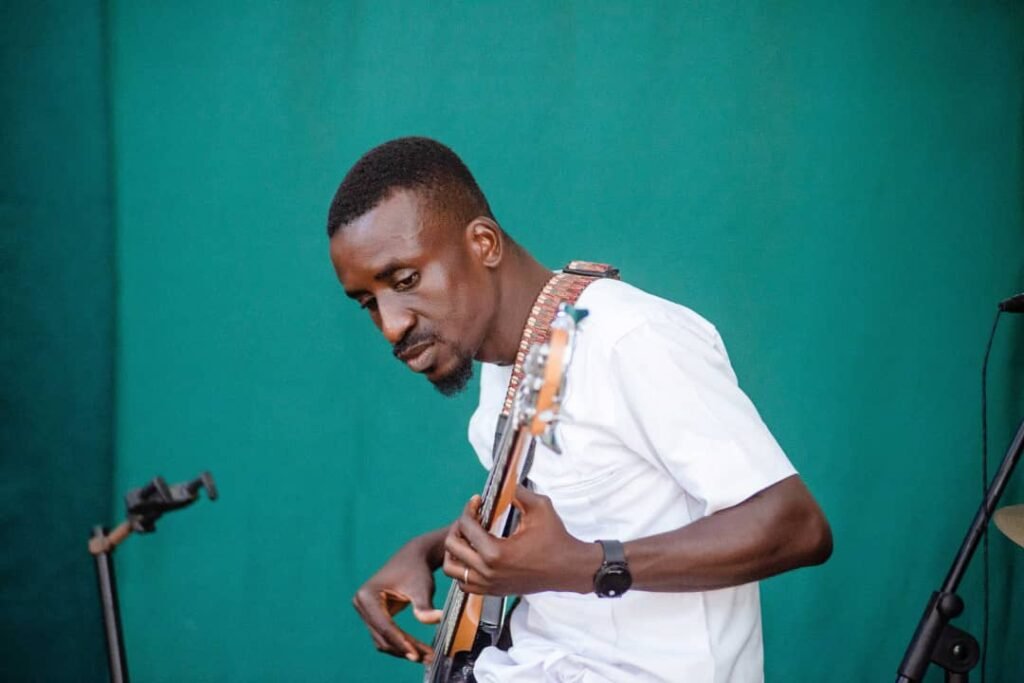
Around 2006, Daniel made a life-changing decision to take his craft seriously. He began practising for hours on end, sometimes up to eight hours a day, often without food, locked away from family and friends, perfecting techniques and expanding his creativity. While others assumed he was outdoors socialising, Daniel was indoors sharpening his gift.
His breakthrough came in 2007 when he performed in the TV3 Bands Alive competition. The exposure, applause, and feedback confirmed his dream: “music was not just a passion; it was his calling,” he said.
With time, Daniel moved confidently into the professional space. He performed at studio sessions, live concerts, weddings, church events, and high-profile national programmes. His talent, discipline, and reliability earned him a reputation that continues to attract respected gospel artistes.
Today, he works closely with Daughters of Glorious Jesus, Chris Apau, and Israel Ofori, who have been of immense help to his career ministry. He also collaborates with several ministries and offers support with musical arrangements, live performances, and studio recordings.
Beyond the stage, Daniel sees himself as a mentor. Many young musicians reach out to him, some visiting in person, others calling for guidance. Whether through hands-on training or virtual coaching, he is always ready to teach. For Daniel, music is not just technique; it is character, discipline, and values. He believes a musician must carry integrity both on and off stage.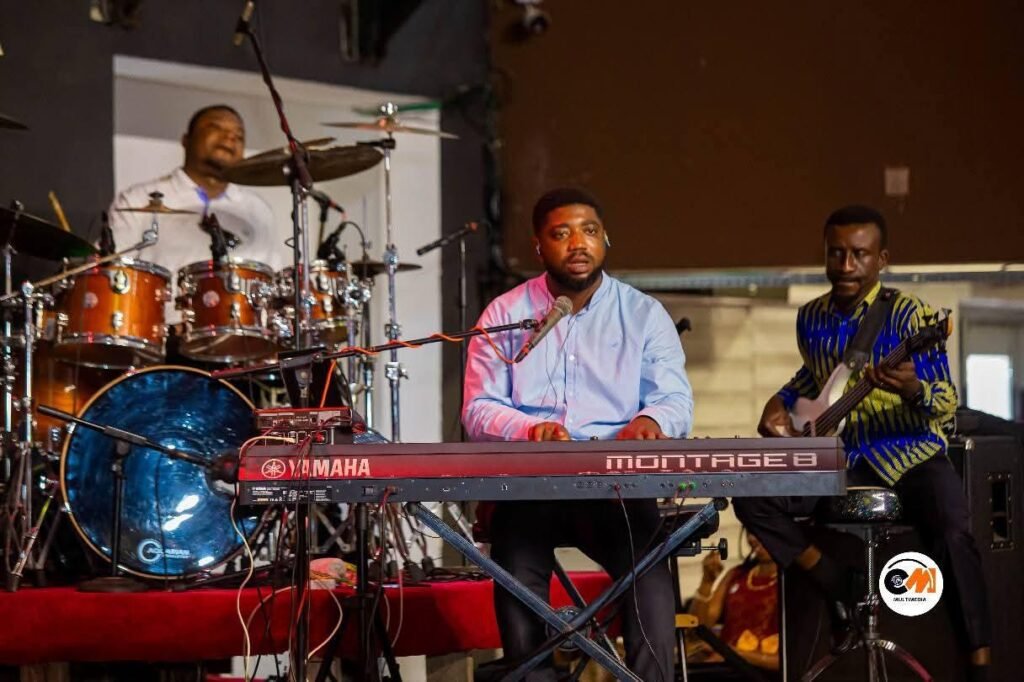
Like many musicians in Ghana, Daniel has faced challenges with delayed payments and broken agreements. These experiences have taught him to value professionalism. He now insists on part payment upfront and charges more for his services, a decision grounded in self-respect and fairness.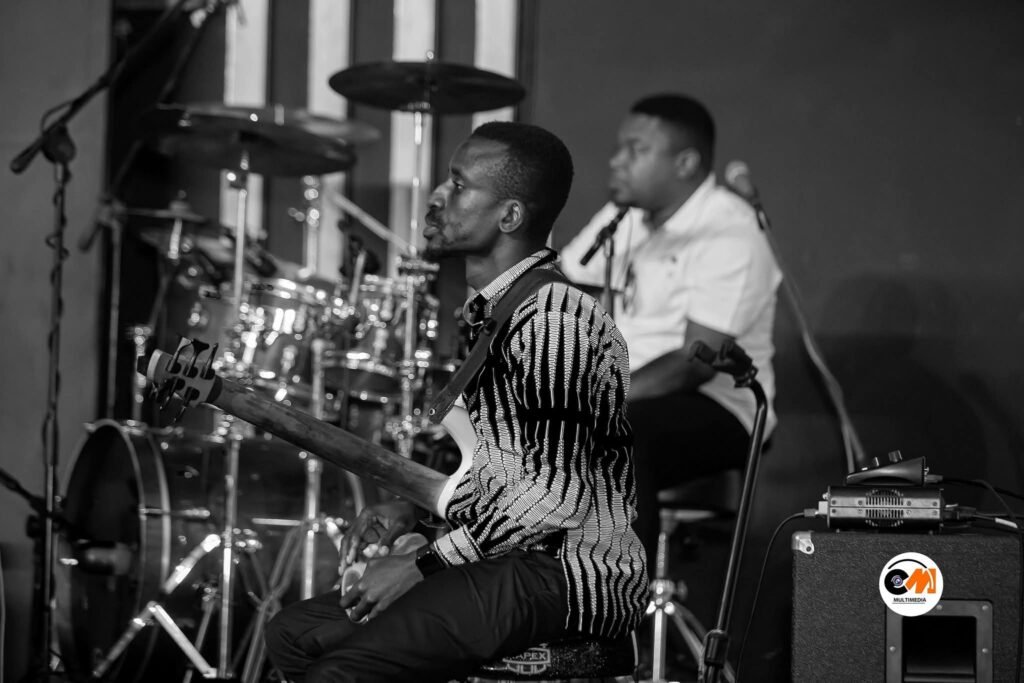
Daniel’s journey in music has been shaped by various individuals who have supported him at different stages of his career. He acknowledged Opoku Agyeman Sanaa, Kofi Ennin, Andrew Klu, Mr. Samuel Abbey, Mr. Samuel Sarpong Agyei, Paul Quartey, Mr. Nene Emmanuel, and Mr. Isaac Asiedu, saying that their belief in him continues to inspire his journey.
Daniel’s work is guided by his Christian faith. He sees music as ministry, not merely entertainment. Off stage, he is a devoted family man—a husband and father of two, a boy and a girl, who have also started playing musical instruments. During his leisure time, he listens to music, or plays football and action video games.
Through his acts of service and unwavering determination, Daniel continues to inspire others, proving that when passion meets integrity, ordinary men impact the lives of others.
By Esinam Jemima Kuatsinu







